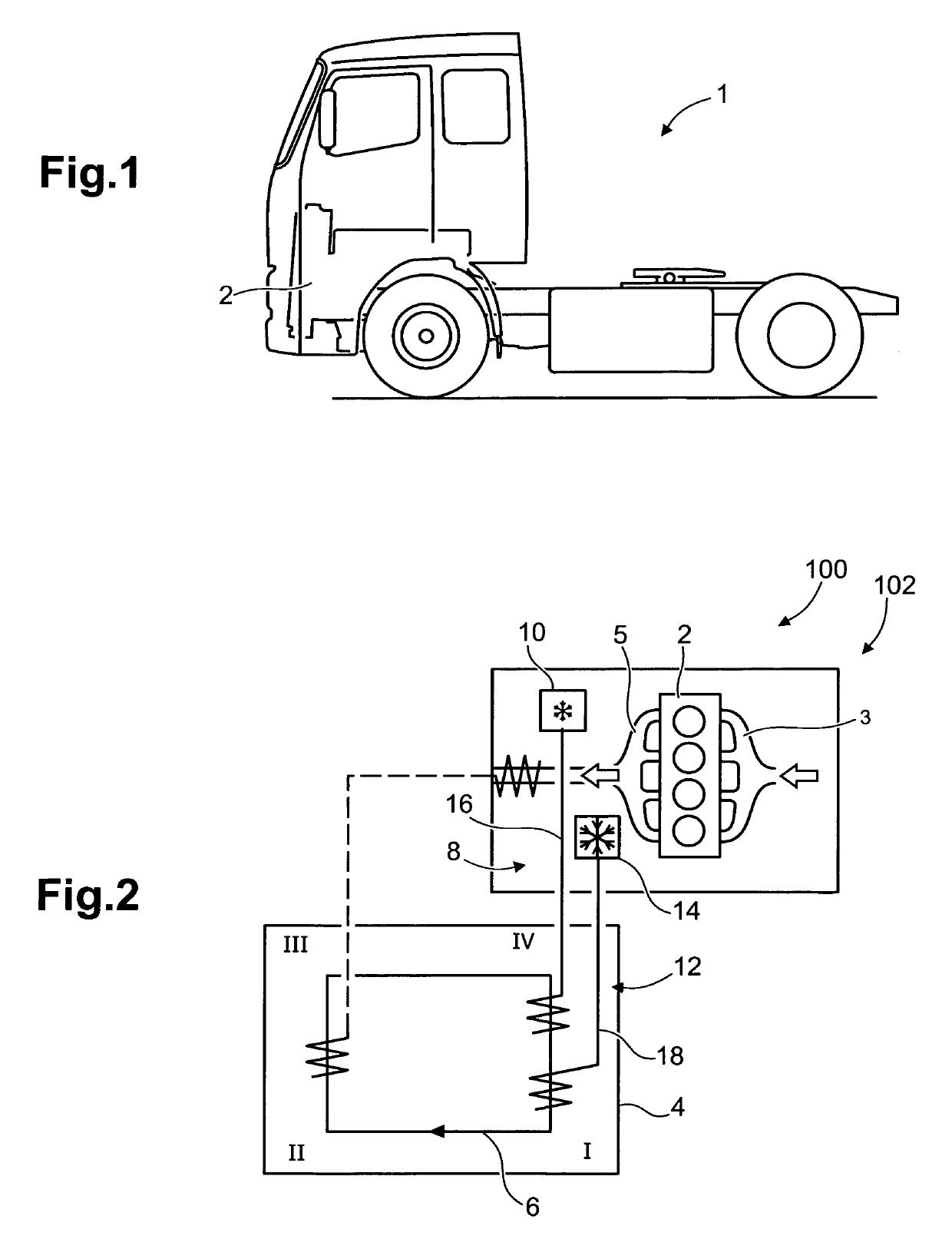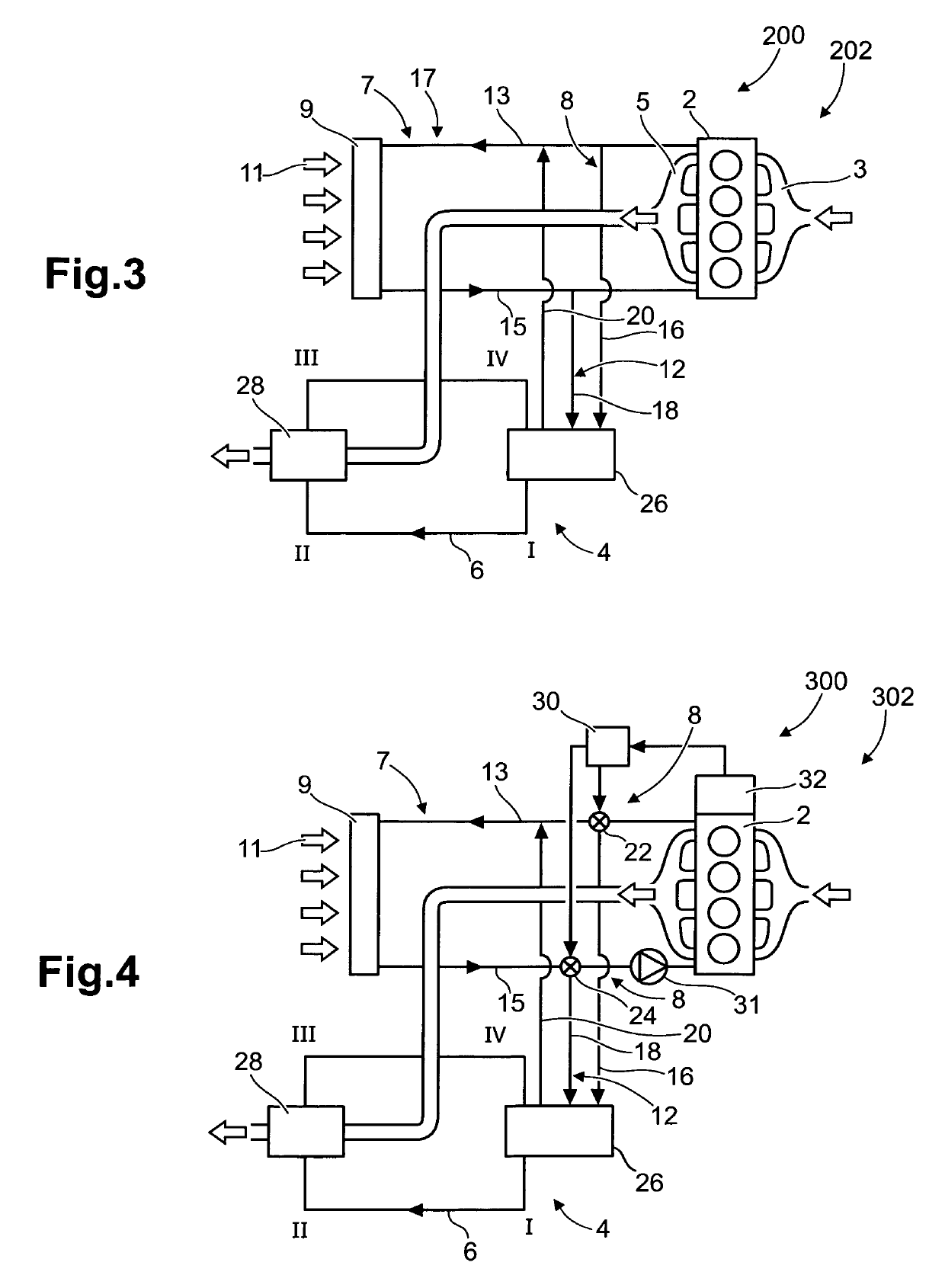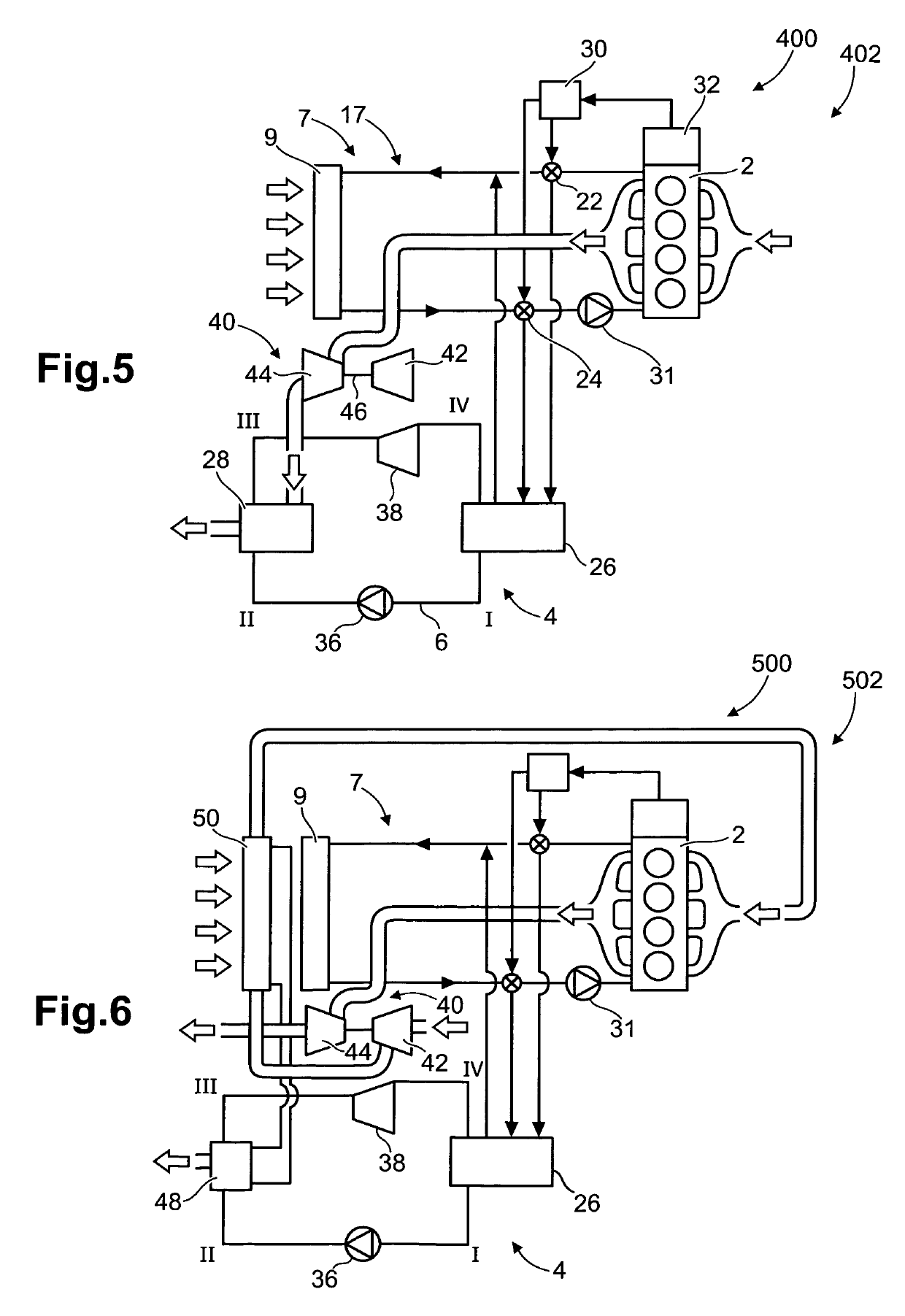Internal combustion engine waste heat recovery (WHR) device including multiple cooling sources for a WHR condenser
a waste heat recovery and internal combustion engine technology, which is applied in the field of internal combustion engine waste heat recovery devices, can solve the problems of low vehicle cooling efficiency, limited cooling possibilities in vehicles, and increased fuel consumption and/or air resistance of vehicles, and achieves the effect of increasing the cooling capacity of vehicles and being cost-effectiv
- Summary
- Abstract
- Description
- Claims
- Application Information
AI Technical Summary
Benefits of technology
Problems solved by technology
Method used
Image
Examples
Embodiment Construction
[0042]In the following same or similar functional parts are indicated with the same reference numerals.
[0043]FIG. 1 shows a side view of a vehicle in the form of a truck 1. The truck 1 is provided with a source of motive power 2 for propelling the truck via a driveline connecting the power source to the wheels. The power source 2 is constituted by an internal combustion engine in the form of a diesel engine. It will in the following for ease of presentation be referred to as an internal combustion engine 2.
[0044]FIG. 2 shows an air intake side 3 and an exhaust side 5 of the internal combustion engine 1. FIG. 2 further shows a first embodiment example of a device 100 for recovery of waste heat generated during operation of the internal combustion engine 2. The waste heat recovery device 100 is arranged for recovery of waste heat from the exhaust gases of the internal combustion engine 1. The waste heat recovery device 100 comprises a thermodynamic engine 4, which comprises a working ...
PUM
 Login to View More
Login to View More Abstract
Description
Claims
Application Information
 Login to View More
Login to View More - R&D
- Intellectual Property
- Life Sciences
- Materials
- Tech Scout
- Unparalleled Data Quality
- Higher Quality Content
- 60% Fewer Hallucinations
Browse by: Latest US Patents, China's latest patents, Technical Efficacy Thesaurus, Application Domain, Technology Topic, Popular Technical Reports.
© 2025 PatSnap. All rights reserved.Legal|Privacy policy|Modern Slavery Act Transparency Statement|Sitemap|About US| Contact US: help@patsnap.com



